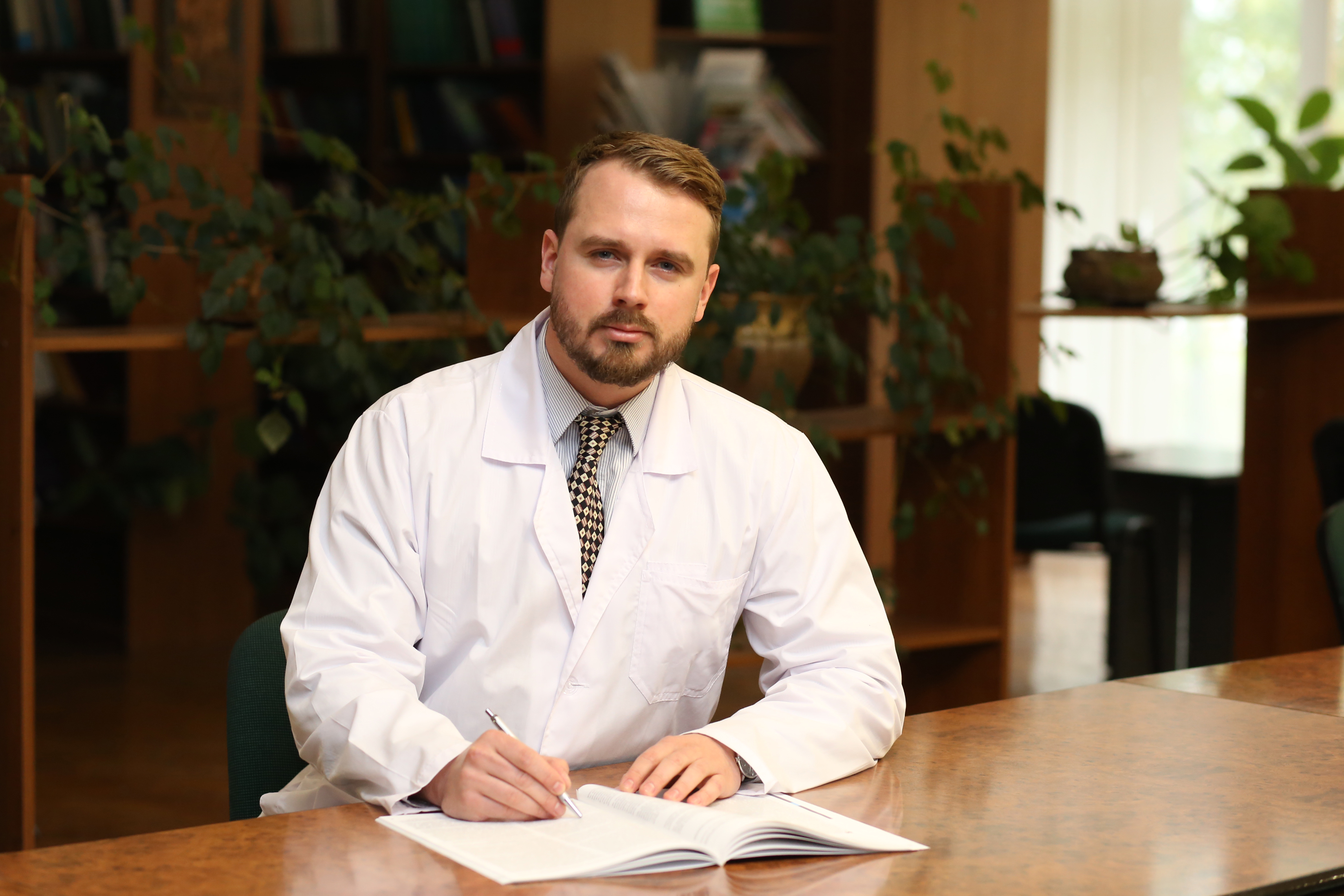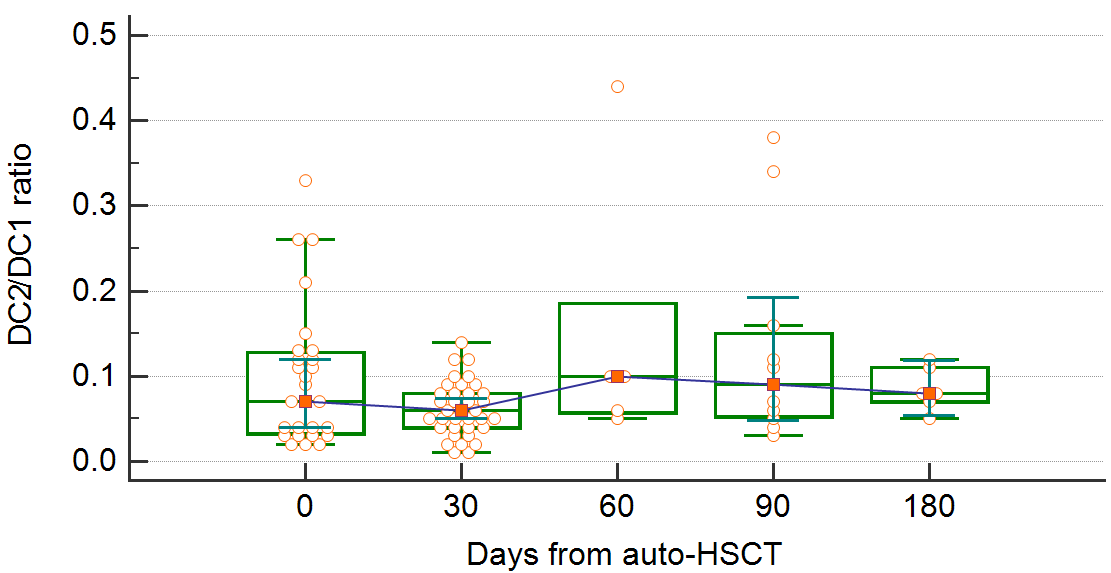
Infectious Diseases Consultant at Minsk Scientific and Practical Center for Surgery, Transplantology and Hematology (Belarus). Principal investigator in numerous clinical trials in the area of Transplant Infectious Diseases and Infections in Immunocompromised Hosts. Fulbright Visiting Investigator at Center for Microbes, Inflammation and Cancer at Memorial Sloan Kettering Cancer Center (New York, United States) in 2017-2018. Author of more than 100 scientific publications. Awards received from the European Society of Blood and Marrow Cell Transplantation, the European Hematological Association, and The Transplantation Society. Chairman of the Minsk Study Group for Infections in Hematology, Transplantation and Cancer. Research and practical interests include emerging infectious diseases, adult vaccination, vaccination of immunocompromised hosts, treatment and prevention of infectious complications during chemotherapy, organ and tissue transplantation, rational antibiotic therapy, and human microbiome studies.
Web of Science ResearcherID G-8688-2019
ORCID ID 0000-0003-0483-7329
Immune reconstitution after autologous hematopoietic stem cell transplantation in multiple myeloma patients as a basis for early vaccination with T-cell dependent vaccines
Igor Stoma1,2, Igor Iskrov1, Viktoria Smolnikova1, Natalia Milanovich1, Irina Lendina1, Anatoly Uss1, Oleg Rummo1.
1Minsk Scientific-Practical Center for Surgery, Transplantation and Hematology, Minsk, Belarus; 2Belarusian State Medical University, Minsk, Belarus
Minsk Study Group for Infections in Hematology, Transplantation and Cancer (MSTH).
Introduction: Currently, the vaccination of transplant recipients is of particular practical importance, since in this population the incidence of vaccine-preventable infections is much higher, while the level of vaccine coverage remains low, especially in adults. Immune response to the conjugated vaccines is based on T-dependent (CD4+) activation of B-cells, which should be taken into account when estimating the recovery time of the immune system after transplantation in candidates for vaccination [1]. Timing of vaccination with T-cell dependent vaccines should be carried out with regard to reconstitution of the following B-cell levels: NvB (naive B-cells), MnSw-cells (memory non-switched B-cells), MSw-cells (memory switched B-cells), levels of dendritic cells (DC1 and DC2) and their ratio. Therefore, in this study we aimed to assess the immune reconstitution dynamics in autologous hematopoietic stem cells (auto-HSCs) transplantation patients as a basis for early vaccination with T-cell dependent vaccines.
Materials and Methods: The procedure of HSCs transplantation and pre-transplant conditioning were performed according to current EBMT guidelines. The immunophenotype of peripheral blood cells was determined by the method of eight-color flow cytofluorimetry using a FACSCanto ΙΙ flow cytofluorimeter (Becton Dickinson, USA). Immunophenotyping was performed for all adult patients with multiple myeloma included in the research phase: baseline (before auto-HSCT), day +30, day +60, day +90, day +180. For statistical analysis the Kruskal-Wallis test (ANOVA) was used. Post-hoc analysis was performed by Conover test. The analysis was a part of a registered clinical study (ClinicalTrials.gov Identifier: NCT03619252).
Results and Discussion: There were totally 37 adult HSCs transplant recipients included in the study, with baseline characteristics given in Table 1, all of them had multiple myeloma as a primary disease and an indication for auto-HSCT.

In the studied sample, starting from the 30th day, the level of CD4+ was above 200 cells/μl in all patients (Fig. 2), which indicates the effectiveness of early vaccination with T-dependent vaccines in patients after auto-HSCT [2]. Levels of naive B-cells returns to the initial value by the 60th day after transplantation (Kruskal-Wallis test 41.97; 4 d.f.; p<0.001), Fig. 2. Dendritic cells recover as early as the 30th day from autologous transplantation, both DC1 and DC2 (Kruskal-Wallis test 25.78; 4 d.f.; p<0.001 for DC-1 cells and Kruskal-Wallis test 11.17; 4 d.f.; p<0.025, respectively), Fig. 3-4.



Conclusion: Observed immunological reconstitution rates in patients after autologous HSCT may serve as a basis for early vaccination start (at 60 days after HSCT) with T-cell dependent vaccines, including, but not limited to conjugate vaccines.
[1] Jochems SP, Weiser JN, Malley R, Ferreira DM. The immunological mechanisms that control pneumococcal carriage. PLoS Pathog 2017;13:e1006665.
[2] French N, Gordon SB, Mwalukomo T, White SA, Mwafulirwa G, Longwe H, et al. A Trial of a 7-Valent Pneumococcal Conjugate Vaccine in HIV-Infected Adults. N Engl J Med 2010;362:812–22.
There are no comments yet...